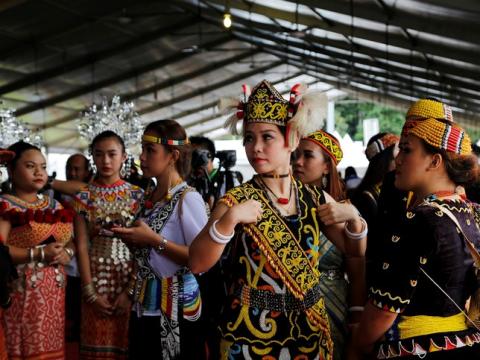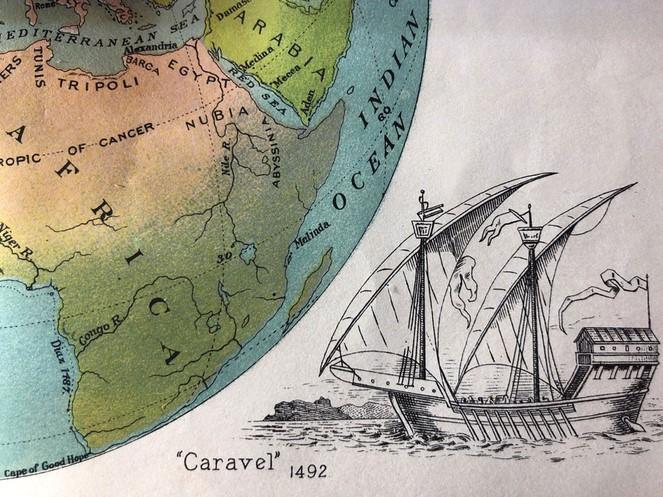The International Decade of Indigenous Languages (IDIL) campaign by the United Nations has been celebrated as a significant overture to Indigenous peoples globally. The main aim is to ensure Indigenous peoples’ right to preservation, revitalisation and promotion of their languages. In many countries, Indigenous languages are less dominant and lesser known, hence their place among the most-threatened languages in the world today.
IDIL is a call for action, and higher education (HE) can play an important role in ensuring that we show not only a desire to support and champion the campaign but also a genuine effort to champion inclusivity and representation of Indigenous cultures and languages in higher learning institutions. But what can HE do to support IDIL so it reaches the communities who speak those languages and ensure they are included in the campaign? And how can HE stimulate a global dialogue that helps ensure inclusion of the Indigenous communities whose languages we are hoping to salvage?
- Decolonising your learning resources: representation matters
- Does decolonisation in the West do anything for the developing world?
- It is about ‘people knowing who I am’: reflections on how to guide inclusion work in universities
Start within to recognise Indigenous languages
A recognition of the importance of Indigenous languages across faculty and the campus community is a key starting point. We can look at the composition of the university population itself. How many of our students are Indigenous? How have they been made aware that their Indigenous languages hold currency as much as English or other more dominant languages? Lack of inclusion of Indigenous languages is akin to shutting out spaces for meaningful inclusion of Indigenous students and indigenisation in HE.
Efforts from within could begin with simple awareness projects by students and for students. Promoting Indigenous Languages of Malaysia, a CSR project by students at our university, is a good example. The project was based around a webinar that included talks, educational sessions, storytelling workshops and performances as well as poster and song competitions aimed at stimulating interest among the young student population.
Projects such as this not only promote awareness of Indigenous languages within the campus community but also create a safe space for Indigenous students and inspire a sense of pride that their languages matter.
Create win-win partnerships with Indigenous groups
Research partnerships with Indigenous groups enable genuine relationships to be built with communities and ensure meaningful engagements can be made. When scholars conducting research among Indigenous communities are aware that they are reliant on the community’s support and expertise to inform their research, a genuine relationship can be established where there is a worthwhile output for both parties.
In two recent Language Legacy grants funded by the Endangered Language Fund (ELF), my team and I worked closely with the Kayan Indigenous community in Borneo, Malaysia. For Indigenous communities, a close collaboration with researchers is an acknowledgement of their crucial role as guardians of their traditional knowledge and bears the message of inclusion within broader mainstream society. But what my team and I found to be equally satisfying was the knowledge that due to our efforts HE is regarded as a defender of their culture. The win-win nature of our partnership was at least partly evident in their genuine appreciation of their involvement in the project.
For example, recognising that the language documentation works that I carried out with my colleagues – Sumathi Renganathan and Inge Kral of the Australian National University – and which was archived at PARADISEC was a first of its kind for the Kayan, the Kayan paramount chief, Temenggong Elizabeth Deng, remarked that the “world now knows us, and our language will forever live because of your efforts”.
Support from the ELF had been instrumental and a major breakthrough for the Kayan, because such works on their language and culture had never been carried out before. Outputs resulting from collaborative works with the community have also been archived at a Kayan language legacy website, which serves as a crucial reference for both the Kayan and scholars interested to learn about them and their language. This is an important first step for the Kayan, as their language is not formally recognised in Malaysia.
Indigenous researchers taking the lead
Indigenous researchers themselves should ideally take the lead in educating Indigenous communities and mainstream society about the issues surrounding Indigenous language endangerment. As insiders, they are well positioned to connect HE and the IDIL campaign to Indigenous communities.
As an Indigenous Kayan researcher myself, carrying out language documentation works with the Kayan community in Borneo, I found this to be true in my own experience. Indigenous peoples do not often see people from their communities represented in scientific spaces such as HE. Seeing this matters, because it assures them that they are being authentically included rather than merely exploited as the object of research. Thus, when Indigenous scholars take the lead, the community is likely to be more eager to contribute their cultural knowledge as research partners.
This is not to say that non-Indigenous scholars cannot or should not help. In fact, their partnership with Indigenous scholars is crucial, especially when non-Indigenous scholars can serve as mentors to early career Indigenous researchers, thus helping establish real inclusion in HE.
Thoughts for the future
Language endangerment is an urgent issue with consequences that can affect not only the Indigenous communities but humanity as a whole. It is critical that the scientific community takes the lead to forward and advocate for Indigenous language documentation and supports the UN call for action.
Roselind Wan is a lecturer and head of the language and communication cluster in the department of management and humanities at Universiti Teknologi Petronas (UTP), Malaysia.
If you found this interesting and want advice and insight from academics and university staff delivered direct to your inbox each week, sign up for the THE Campus newsletter.




comment